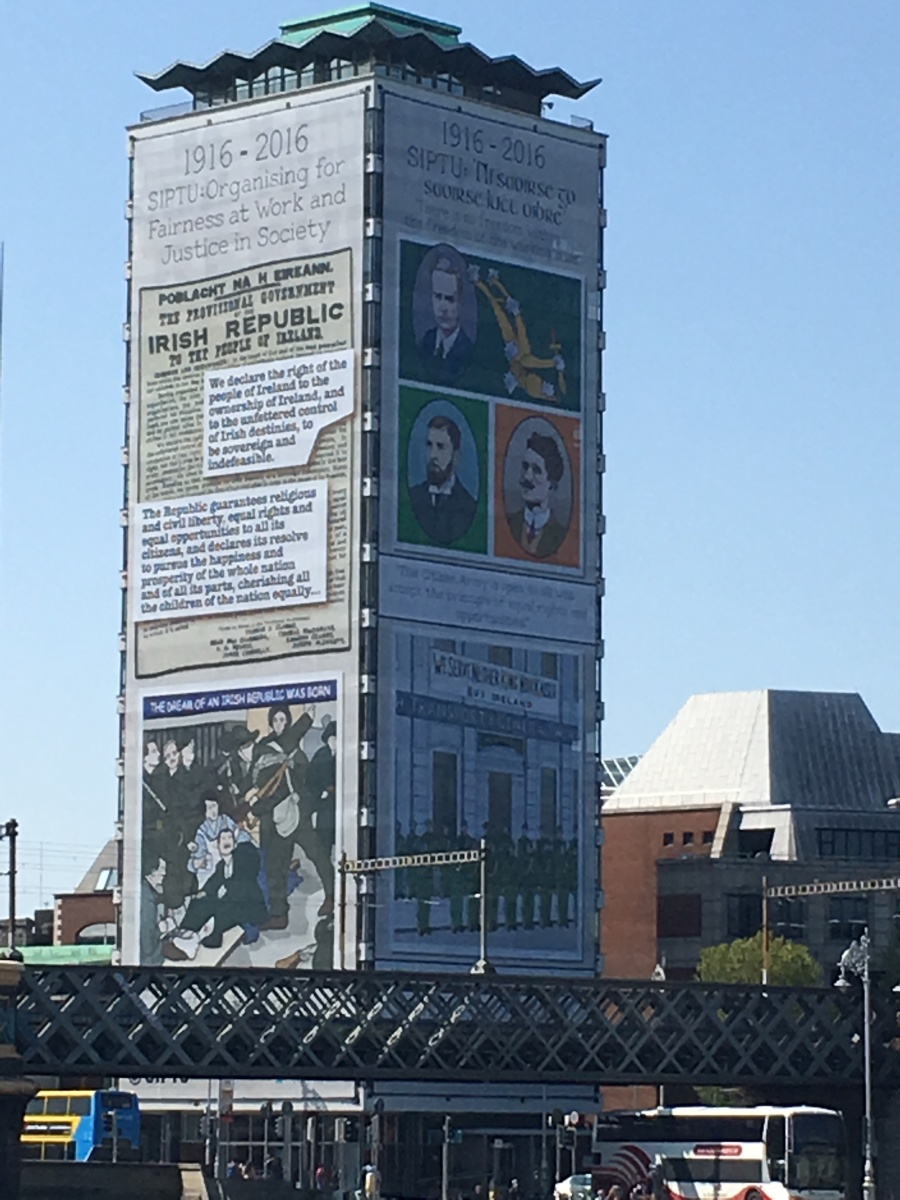In America, we adore football. Every Sunday, we gather around the TV and cheer for our favorite team. For a little while, the color of the player’s skin or what political side they are on does not matter. Can they catch the ball? Yes? Great.
In Quietly, soccer is used as a unifier. Everyone is sitting in the bar watching the game and bickering about what team is better. It was all that Robert and Jimmy could talk about in the beginning of the play. It was also the last thing that Jimmy’s father was watching with his friends right before they were killed. So, in the story, soccer was incredibly important. It unified everyone in that bar because it was a game everyone was interested in. It also shows where people’s identities lie. Robert, who’s polish, of course woots for the Polish team because that’s where he was born and raised. Even though he is not living there anymore, you can tell that he still loves Poland because he wants that team to win. His loyalties lie in Poland, not Belfast. Jimmy, on the other hand, has no ties to Poland, so it’s clear that he is loyal to the opposite team. While reading Quietly, we get the sense that sports can be a great unifier, and can show how people identify on a national level.
When we went to see the Greyhound races, I thought about Catholics and Protestants. If these races were held in Belfast, Would they need separate seating for each side? I feel like the issues between them would dissolve for the races, simply because all that matter was what dog was faster and how much money you were losing. The political issues would dissolve if a sport was distracting everyone. I think the concept of using sports as a way to temporarily keep the peace is very interesting.


 Not only do they know WHO fought in the war, but they know their stories. They know what happened to them afterward, how/if they were executed, and the families they left behind. Now that I know so much about Easter 1916 here in Ireland, I feel like I do not know enough of American soldiers and their lives during the Revolutionary war. I know a few leaders on both sides of the war, and I know what happened to two or three of them after the war, but I’m unaware of the finer details of the battle. We all learned about it in school, but I don’t think the details really matter that much to people.
Not only do they know WHO fought in the war, but they know their stories. They know what happened to them afterward, how/if they were executed, and the families they left behind. Now that I know so much about Easter 1916 here in Ireland, I feel like I do not know enough of American soldiers and their lives during the Revolutionary war. I know a few leaders on both sides of the war, and I know what happened to two or three of them after the war, but I’m unaware of the finer details of the battle. We all learned about it in school, but I don’t think the details really matter that much to people.